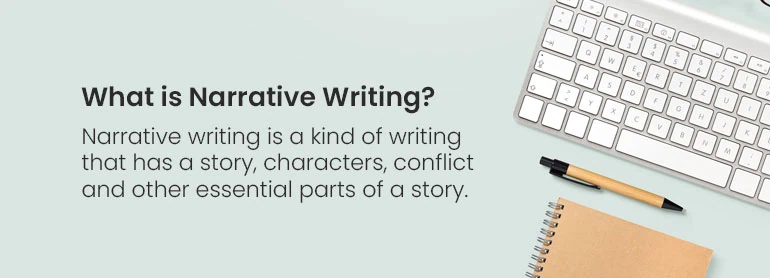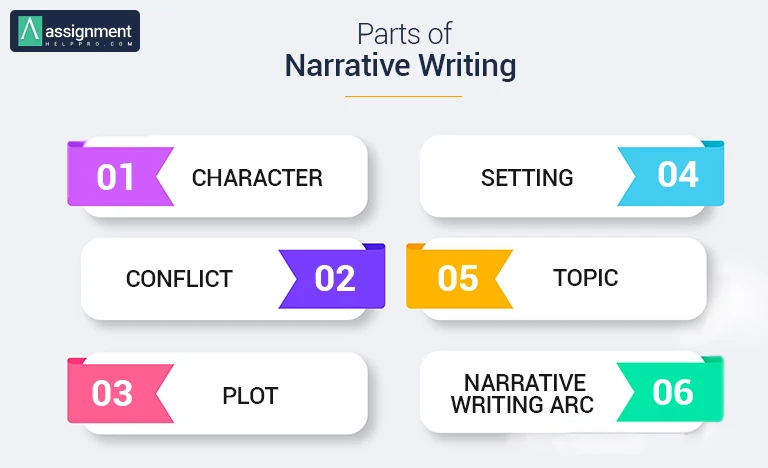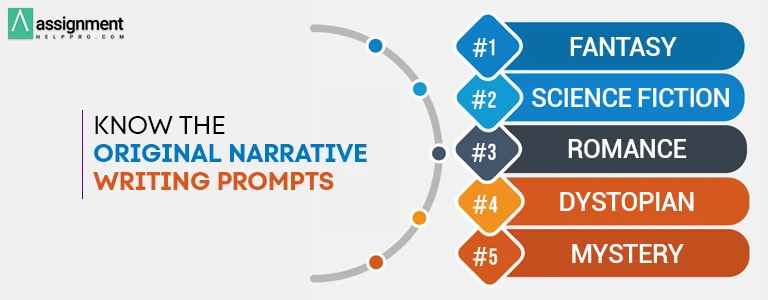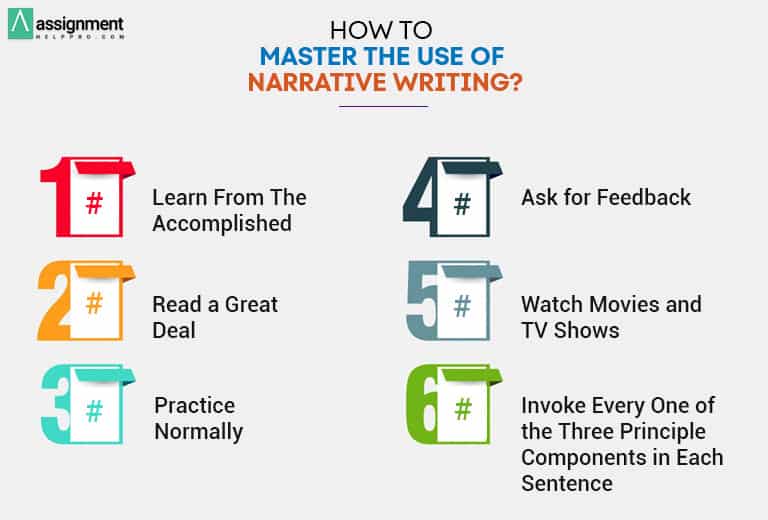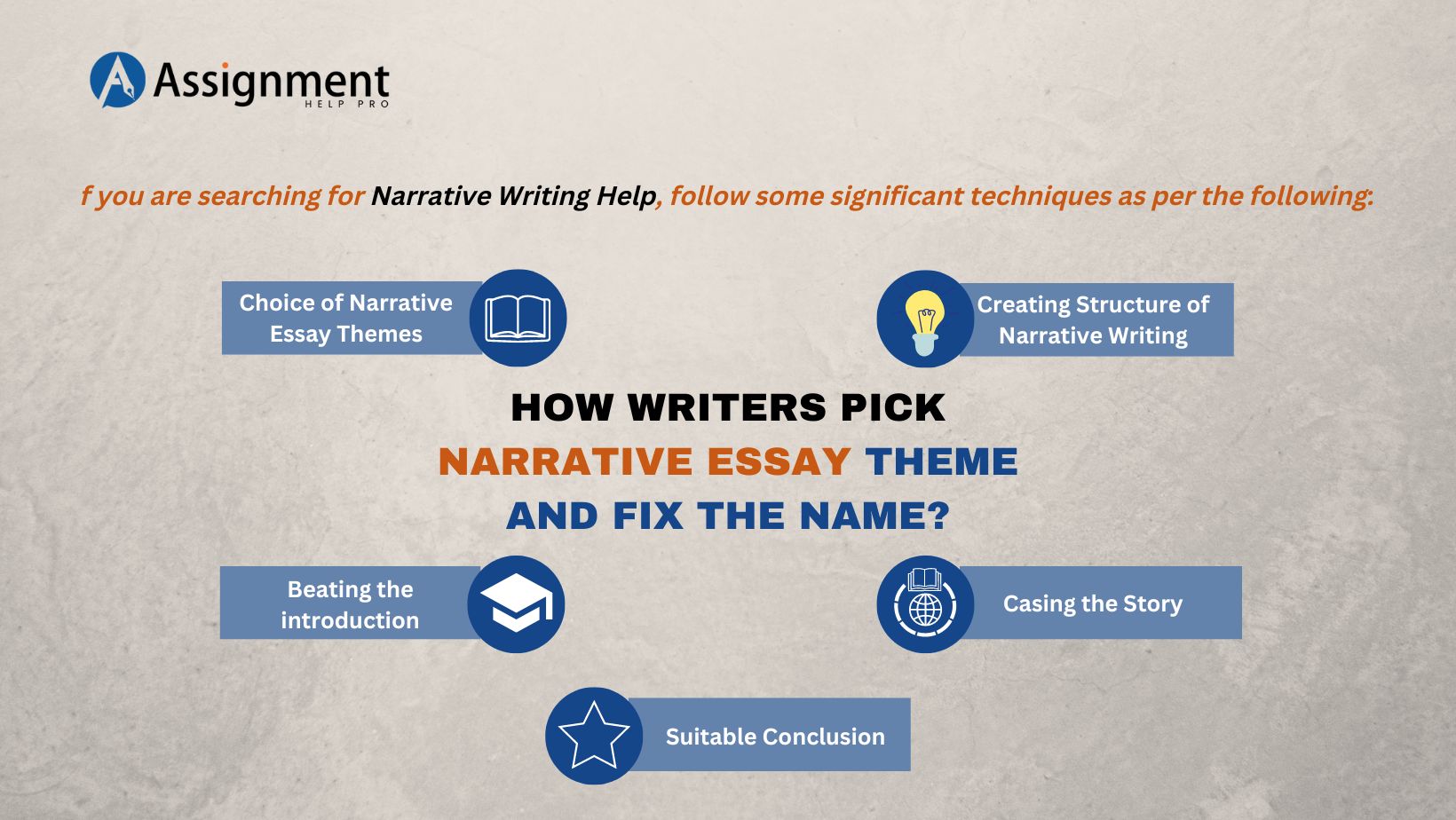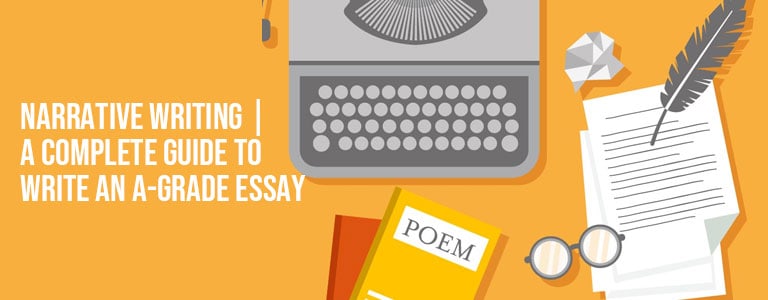Narrative writing is one of the important styles of writing the students will be often asked to focus on while preparing their English or Literature assignment. If you are a student who is unaware of what narrative writing means, then this blog is for you. Here, for your better comprehension, in detail, we have explained the narrative writing techniques, different types of narratives, and the effective ways to find out a narrative essay theme. Continue reading to update your knowledge of narrative writing.
What is a Narrative?
Narratives are a mainstream kind for students and educators as it furnishes the writer with a chance. To share their creative mind, inventiveness, aptitude, and comprehension of nearly all components of writing. Once in a while, we allude to a narrative as ‘experimental writing’ or story writing.
The motivation behind a narrative is straightforward, to recount to the crowd a story. It very well may be composed to propel, educate, or most ordinarily engage. Narratives can be both actuality or fiction.
The test in writing a decent narrative is to enamor the crowd and keep them drawn in as the story is told.
Definition of Narrative Writing
Narrative writing is a form of writing that mainly focuses on the plot, characters, conflict, and other crucial elements of a story. In general, narrative writing is frequently inseparable from a story.
Moreover, this type of story writing stood out from various other kinds of composition like in books and other reading materials.
In any case, writing a story or something similar is called narrative writing in which the author tells the story to the reader.
Major Parts of Narrative Writing
Basically, narrative writing is made of different parts. Those parts are essential for writing an interesting novel. Here, let us have a look at the important parts of narrative writing.
1. Character
Characters are vital elements in a story. As character development is probably the most enjoyable aspect of narrative writing, it is extremely challenging to tell a story without them. Consider your characters to be the narrative’s main focus.
2. Conflict
The strain originates in this section of narrative writing. When narrating a story, conflict is necessary and it can be between characters, between elements in your setting, or even in your plot.
3. Plot
Your narrative’s primary concern is this. What will happen when we arrive and where is everything going? This can routinely consolidate any contention. However, it typically constitutes the narrative’s “primary” section.
4. Setting
A story’s type is truly determined by its setting. It helps the readers learn as much as possible about the world that is reflected in the story. If your book is set in another world, a more detailed description of the environment is necessary, and the setting greatly enhances this. This indicates that it will significantly permeate your narrative.
5. Topic
Even if you make an effort not to, these are woven into your narrative. Narrative writing tells a story and includes accounts. The exercises are discovered, and your story will revolve around them. No matter whether you intend it or not, your narrative writing will allow you to incorporate your thoughts about the topic.
6. Narrative Writing Arc
It is a story structure the narrative writing follows. This includes key achievements like the opening sequence, the second sequence, the peak, the goal, and even the tiniest of details like the character curve.
Different Types of Narrative Writing Prompts
If you’re ready to begin narrative writing, even before we’ve secured the significant hints underneath, look at these writing prompts to motivate you.
Narrative Writing Prompts #1 – Fantasy
Set in its reality, write a story about a solitary plant, saved alive in a sanctuary for a large number of years. One day, the gatekeeper working saw it had dried and wilted totally, removing the general public’s enchantment.
Write a story about a lady who works the night shift at a neighborhood comfort store winding up amidst what is by all accounts an extraordinary enchantment fight… in her shop.
Make your reality and write a story about cutting-edge human progress as though enchantment is and has consistently been the standard…
Until somebody from the outside is found to wonder about its miracles, as though they’ve never observed it.
Narrative Writing Prompts #2 – Science Fiction
Write a story zeroing in on a road clear who works in the Dark, the place at the Earth’s surface where exhaust clouds and contamination have dominated. But when cleaning a particular city intersection, they reveal an underground human advancement who has consummated the innovation to channel the air, leaving them with the most flawless on the planet.
Write a story about a specialist who was simply replaced by a machine to analyze, treat, and even work on patients.
In a cutting-edge society, the privilege of protection has been abrogated to guard individuals after an overall fear-based oppressor assault. Your principal character, an architect, has found how to supersede the “secure” observation system…
What they find in the information base changes everything.
Narrative Writing Prompts #3 – Romance
Your fundamental character is a strawberry picker who has an altercation with the affection intrigue. Who is stowing away in the fields, eating, and picking strawberries? As a method for endurance since they’re on the run… and destitute.
Write a story about two individuals who have been companions since their youth. However, their families have guaranteed them union with others notwithstanding their being infatuated.
Write a story zeroing in on a semi-truck driver attempting to beat a tainted past as they meet somebody who works in law implementation while at a coffee shop.
Narrative Writing Prompts #4 – Dystopian
More than a thousand years have gone since it occurred. One man ignored government orders to demolish his investigation into a nanobot innovation after he found out how to make them think.
Write a story about an elderly person whose granddad, when he was youthful, settled on the decision to release the privileged insights of disease exploration—and its fix—to the world. Presently populace control has become a significantly greater issue.
Environmental change is inescapable. Write a story about what happens when a little opening tears in the earth’s environment. Because of environmental change, and what society must resemble to recuperate it.
Narrative Writing Prompts #5 – Mystery
Your character gets a call that appears to be normal, from their PCP, about an ongoing test they took. At the point when your character goes in for the appointment to examine, their normal specialist is gone—missing… just to turn up dead days after the fact.
Eight space explorers went to space. Just seven returned. Also, none of them have any memory of an eighth individual who had ever been with them by any stretch of the imagination.
All individuals in extreme lethargies have been vanishing from emergency clinics everywhere over the nation for as long as a quarter of a year, without any leads. Your character is the sister of one of the missing extreme lethargic patients.
Read more info: Narrative Conventions | Understand its Types and Importance in Detail
Learn How to Become a Master in Narrative Writing
By learning a couple of tips about how to write narratives truly well, you’ll be well on your way from a beginner to an expert.
#1 – Learn From the Accomplished
Regularly, the best counsel originates from the individuals who are and have been in the main part of the thing you need to find out about.
They have inside information for the how-tos that are regularly unmistakably more viable than those essentially showing those techniques.
#2 – Read a Great Deal
You master storytelling by reading or tuning in to stories. That is how everybody figures out how to recount a story.
While some are superior to others naturally, reading increasingly more can make you fully aware of new strategies and techniques inside narrative writing.
Reading, in any event, a book a month can help you improve your writing by just submerging yourself in the words of another person.
While a few people may stress that their writing will imitate the book they’re reading, this dread is regularly unwarranted. Your common voice will consistently be at the front line except if you’re deliberately attempting to seem like another person.
#3 – Practice Normally
Narrative writing is an expertise that shows signs of improvement the more you practice, much like most different ranges of abilities.
As you write and make stories with heroes, extraordinary conflict, and a fascinating setting, and that’s only the tip of the iceberg, you’ll figure out how to improve every one of those components.
Perceiving where your qualities and shortcomings are will help you realize what to zero in on and improve… but that must be done through understanding, otherwise known as, practice.
Look at these writing tips and exercises to improve if you need some purposeful practice.
#4 – Ask for Feedback
It’s difficult to be objective with your work. We can’t frequently make a stride back and perceive what we’re fouling up and along these lines, we can get hindered in our development as writers.
Feedback is the way to fix this.
Others see what you don’t. We as a whole notice different things and these remaining parts are valid for writing in particular.
Getting somebody to offer feedback on your narrative writing is perhaps the most ideal approach to improve and fix your shortcomings, turning you into a generally better writer.
#5 – Watch Movies and TV Shows
Truly! We’re authoritatively allowing you to sit in front of the TV rather than chip away at writing but for a quite certain explanation.
At the point when you tune in to writing guidance, regardless of whether it’s from a companion, educator, or distributed writer, you may hear them reference movies as examples.
The purpose behind this is that while a few movies are adjusted from books, everything movies can show you storytelling and the structure of a decent story generally.
Keep in mind that movies are best for a general perspective on storytelling for a book, TV shows are greatly improved at showing you how to write a decent section since every scene fills in as a part of that story, the whole season as what might be compared to a novel.
Here are a few questions to ask after you watch a movie or TV show:
- How could it start?
- What was different and charming about how situations developed?
- Was there a turn? What anticipating did they use to make the curve amazing, but inescapable?
- What were the three greatest minutes in the story?
- Did the closure interface with the start?
#6 – Invoke Every One of the Three Principle Components in Each Sentence
These are character, plot/conflict, and setting.
Brandon Sanderson talks a ton about these three principle components of narrative writing in his lectures on YouTube.
Nonetheless, when you’re considering writing each line to indicate to your readers more about the character, the world/setting, and the conflict across the board, you will be a fantastic writer generally speaking.
Here’s an example of what this implies
Better and Summoning 3 Components:
The lady was insane enough to step outside, not a solitary piece of apparatus on her body, substance uncovered in a few places.
Why this is Better
In the principal example, we don’t generally pick up anything. All we see is a lady going outside with no rigging. Presently, truly, in this first example, we get the inclination that having gear on is most likely significant, but we don’t perceive how a lot. In the subsequent example, be that as it may, we get a feeling of every one of the three components.
To start with, we realize that the character thinks such a demonstration is insane. Also, we discover that the setting must be perilous and cruel enough to require gear (or be considered insane if you don’t have it). Furthermore, in conclusion, this possibly adds to the plot or conflict by giving us. That the outside is perilous, or a place one can’t just leave to with skin uncovered.
How Do Writers Pick a Narrative Essay Theme?
The writers at AssignmentHelpPro.com follow a systematic and fixed methodology at the time of writing narrative writing papers. If you are searching for Narrative writing help, a portion of the significant techniques followed by our writers will be as per the following:
#1. Choice of Narrative Essay Themes
Our experts attempt to think of the most fitting and important narrative writing to help subjects for the students. They have careful information on the field and have a comprehension of what data ought to be incorporated. And where it ought to be placed in a narrative simple.
Likewise, they pick the theme and work on the equivalent. If the point has already been chosen by you or your University then the experts build up the plot of the essay.
#2. Creating Structure of Narrative Writing
Our writers are notable in the structure of narrative writing. In this way, they attempt to make an unmistakable structure, by picking the compelling jargon and casing a conclusion as per the fundamental discoveries of the entire narrative essay.
They know every one of the tips and deceives for making the narrative essay powerful and locked in. The essential structure of narrative writing can be explained by the premise of the picture underneath.
#3. Beating the introduction
The introduction is the part of the narrative essay that ought to be written in the most appealing and viable way. Our writers realize that the underlying lines of the introduction ought to be eye sufficiently intriguing to pick up the consideration of the reader.
They likewise realize that it should have been written in rational language to get the commitment of the readers from the absolute first line. The introduction ought to present the plot or the theme which is to be portrayed in the further paragraphs.
#4. Casing the Story
The principal reason for narrative writing is to outline a story with the help of viable words and sentence organizing. This requests to put a ton of inventiveness by the writers. Consequently, the writers needed to know the essential standards of writing a narrative essay.
Reading: Narrative Conventions-Understand their Types and Importance in Detail
#5. Suitable Conclusion
The narrative essay needs to finish with a legitimate and reasonable conclusion. Our writers guarantee to put a reasonable conclusion while writing a narrative essay paper. The conclusion should detail the effect of the experience. AssignmentHelpPro.com follows each fitting example to fulfill the students as they trust in us and our experts.
Final Words
Hopefully, by now, you will have gained a good knowledge of narrative writing. In case, you have any doubt regarding this concept or if you need an expert to help you with narrative writing assignments, then contact us immediately. On our platform, we have numerous academic writers with excellent narrative writing skills to provide you with the best assignment help online as per your needs. Moreover, by utilizing narrative essay writing services from our finest essay writers, you can also submit your tasks on time without any trace of plagiarism.
Why are you still hesitating? Instead of pressurizing yourself, just book your order on our website and earn the scholastic benefits offered by our assignment help service.
1. What does narrative writing mean?
Narrative writing is a method of telling a story where the main character narrates any situation or incident he or she came across. The writer of the narrative piece writes from the perspective of the narrator (main character).
2. What is an example of narrative writing?
A personal essay, autobiography, and self-reflective writing are examples of narrative writing. Nora Ephron’s My Life as an Heiress is an example of narrative writing.
3. What are the 3 types of narratives?
3 types of narratives are first-person narrative, second-person narrative, and third-person narrative. First-person narrative and third-person omniscient narratives are mostly found in the literature of any language.
4. What is a narrative?
The narrative is an art or style of telling a story to the readers or the listeners. Ralph Waldo Emerson’s Self-Reliance is an example of narrative writing.
